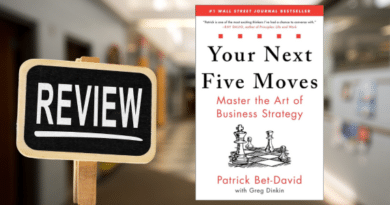6 Things You Need to Avoid When Hiring Employees
Are you looking at hiring employees? Don’t make the same mistakes many business owners make.
As a business owner, you eventually hit a wall. You realize there aren’t enough hours in the day to do everything yourself. This is especially true if you’re a solopreneur who owns an LLC and has been juggling every single task.
Let’s be clear: this is a great problem to have. It means your business is growing.
But the process of hiring employees can be a minefield of costly and time-consuming mistakes. The old saying is “be slow to hire and quick to fire,” and in my experience, that holds true. A bad hire can cost you, according to a 2023 report from the Society for Human Resource Management (SHRM), anywhere from a few thousand dollars to much more, depending on the role.
This guide will help you sidestep the most common errors, some of which carry serious legal consequences, so you can build a team that pushes your business forward.
Key Takeaways
- Avoid Discrimination: Always focus on skills and experience. The U.S. Equal Employment Opportunity Commission (EEOC) enforces strict laws against discrimination based on race, gender, religion, age, and disability.
- Ask Job-Related Questions Only: Steer clear of personal inquiries about family, age, or lifestyle. Frame questions around the candidate’s ability to perform the job’s duties.
- Conduct Background Checks: Use an FCRA-compliant service like GoodHire or Checkr to verify information and protect your business, but always get written consent first.
- Implement Clear Policies: Create a detailed employee handbook and have every new hire sign an acknowledgment form. This protects both you and the employee.
- Manage Taxes Correctly: Secure an Employer Identification Number (EIN) and use payroll software like Gusto or ADP to handle withholdings for federal, state, and local taxes accurately.

6 Things You Need to Avoid When Hiring Employees
Here are six critical mistakes you need to avoid when hiring employees for your business.
1. Discrimination
It is illegal to discriminate against an applicant based on protected characteristics. The U.S. Equal Employment Opportunity Commission (EEOC) enforces federal laws that make it illegal to discriminate against a job applicant or an employee because of the person’s race, color, religion, sex, national origin, age (40 or older), disability, or genetic information.
Not only is this fundamentally wrong, but a single discrimination lawsuit can be devastating for a small business. In 2023 alone, the EEOC received over 81,000 charges of workplace discrimination.
Your defense is a consistent, fair process. Evaluate all applicants using the same criteria, focusing squarely on their skills, qualifications, and experience relevant to the job. If a candidate can do the job well, they deserve fair consideration.
2. Asking Personal Questions When Hiring Employees
It is natural to build rapport during an interview, but your interview process must remain professional. Asking questions that touch on personal topics, even innocently, can lead to claims of discrimination.
Avoid questions about topics such as:
- Age or date of birth
- Marital status or plans for children
- Religious practices or affiliations
- Gender identity or sexual orientation
- Disabilities or health conditions
Instead, focus on the job’s requirements. For instance, instead of asking, “Do you have reliable childcare?” you should ask, “The work hours are from 9 AM to 5 PM, Monday through Friday. Are you able to meet this schedule?” This keeps the focus on their ability to perform the job, which is legally defensible.
3. Skipping a Background Check
You must get an applicant’s written permission before running a background check, but doing so is a critical step in protecting your business. A 2023 survey by the Professional Background Screening Association (PBSA) found that 85% of employers uncovered a lie or misrepresentation on a candidate’s resume or application. This shows that verifying information is crucial.
If you use a third-party service, you must comply with the Fair Credit Reporting Act (FCRA). This federal law has specific rules about how you obtain, use, and dispose of this information. Services like GoodHire and Checkr are popular options that help ensure FCRA compliance.

Be upfront with candidates. Ask them to disclose any criminal history. If their answer doesn’t match the background report, it reveals an issue with honesty. If an applicant refuses to consent to a background check, that is a major red flag and a clear signal to continue your search.
4. Skipping a Drug Test Before Hiring Employees
Maintaining a safe and productive workplace is essential, and pre-employment drug testing can be a part of that strategy. You do not want an employee working under the influence of illegal substances, as it creates safety risks and reflects poorly on your business.
Just like with background checks, you must get consent before scheduling a drug test, which you, the employer, will pay for. It is important to be aware of state and local laws, especially regarding marijuana. While it remains illegal at the federal level, many states have legalized it for medical or recreational use. Some states even have laws protecting an employee’s off-duty cannabis use. Because of this, many companies are removing marijuana from their pre-employment screening panels unless the role is safety-sensitive (e.g., operating heavy machinery).
Related Article: 5 Ways to Improve Employee Retention
An applicant’s refusal to take a drug test is grounds for rescinding a job offer. If a test comes back failed, you can also decline to hire them, provided you apply your policy consistently to all candidates.
5. Not Providing Policies and Getting a Signed Agreement
Once you’ve found the right person, your next step is to establish clear expectations from day one. This is done with a comprehensive employee handbook. This document outlines everything from dress code and workplace conduct to payment schedules and procedures for requesting time off.

The handbook protects both you and your employees from future misunderstandings. Crucially, you must have each new hire sign an agreement stating they have received, read, and understood the policies. This signed document is invaluable if a dispute arises later.
For a small business owner, creating a handbook can seem difficult. HR software platforms like Gusto and BambooHR offer templates that can simplify the process and help you cover all the essential topics.
6. Forgetting About Taxes and Withholdings
When you hire your first employee, you officially become an employer in the eyes of the government, and that comes with new responsibilities. First, you must obtain an Employer Identification Number (EIN) from the IRS. This is like a Social Security number for your business.
You also need to handle withholdings and payroll taxes. This includes:
- Federal and State Income Tax: Withheld from an employee’s paycheck based on the information they provide on their Form W-4.
- FICA Taxes: This includes Social Security and Medicare taxes, which are split between the employer and the employee.
- Workers’ Compensation Insurance: This is a state-mandated insurance program that provides benefits to employees who get injured on the job. Requirements vary by state, so you must check your specific obligations.

Managing payroll can be complex. I always recommend that new employers use a payroll service like QuickBooks Payroll or ADP. These services automate the calculations, withholdings, and tax filings, saving you time and reducing the risk of costly errors. You can find more official information on your responsibilities at the IRS website.
Hiring Employees FAQs
How long should the hiring process take?
The time to hire varies greatly by industry and role. According to a 2024 report from SHRM, the average time to fill a position is between 36 and 44 days. For a small business, a 2-4 week process is a reasonable goal. The key is to be thorough, not rushed. Taking an extra week to find the right person is better than making a quick hire you’ll regret.
What’s the difference between an employee and an independent contractor?
The IRS has strict guidelines for this. Generally, the difference comes down to control. An employer has the right to direct and control the work of an employee, including when, where, and how the work is done. With an independent contractor, the payer only has the right to control or direct the result of the work, not what will be done or how it will be done. Misclassifying an employee as a contractor can lead to significant fines and back taxes.
Do I need to run a background check before hiring employees?
While not legally required for all roles, it’s a best practice to have a consistent policy. If you run checks for a specific role, you should run them for all candidates applying for that role to avoid claims of discrimination. It is especially important for positions that involve handling cash, working with sensitive data, or having access to customers’ homes.
While this article covers six key mistakes, there is always more to learn. Remember to take your time when hiring employees for your small business. The process should be slow and methodical so you can evaluate each applicant thoroughly and build a team you can count on.


*Disclosure: This article may contain affiliate links or ads, which means we earn a small commission at no extra cost to you if you make a purchase through these links. These commissions help support the operation and maintenance of our website, allowing us to continue producing free valuable content. Your support is genuinely appreciated, whether you choose to use our links or not. Thank you for being a part of our community and enjoying our content.
PLEASE CONSIDER SHARING THIS ON YOUR SOCIAL MEDIA TO HELP OTHERS LEARN MORE ABOUT THIS TOPIC.





